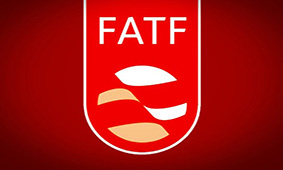
FATF Aims to Undermine Iran’s Scientific Nuclear Power: Official


“Regarding the issue of the FATF, we are witnessing that they have created a security current under the cover of an anti-money laundering organization, and in fact, the FATF is not an economic organization but a security one,” General Vahidi said in a speech on Monday.
“By forming the FATF, they (enemies) want to undermine our scientific nuclear power,” he said,
When the enemy noticed that it cannot hamper Iran’s peaceful nuclear program by resolutions, it tried to include nuclear issues in the FATF to prevent the country’s progress, the official stated.
According to the Financial Action Task Force, Iran had until October 2018 to complete reforms that would “bring it into line with global norms or face consequences” that could further deter investors from the country. On October 19, it extended the deadline to February.
Earlier this month, Iran’s Guardian Council (GC) said despite a recent amendment to the parliamentary bill for the country’s accession to Combating the Financing of Terrorism (CFT) treaty - a series of standards set by the FATF - its problems are still in place.
To fulfill FATF requirements, President Hassan Rouhani’s administration has proposed four bills to the parliament for approval, two of which are still undecided, including the Palermo Convention.
In June 2018, the Iranian parliament passed a law allowing the country to join the United Nations Convention against Transnational Organized Crime (UNTOC), but decided to put on hold debates on accession to the Financial Action Task Force (FATF) for two months.
Iran’s parliament had in May adopted new amendments proposed by the government to the country’s Anti-Money Laundering (AML) law as part of efforts to improve connections to the international banking and trade system.


Trump weighs using $2 billion in CHIPS Act funding for critical minerals

Codelco cuts 2025 copper forecast after El Teniente mine collapse

Electra converts debt, launches $30M raise to jumpstart stalled cobalt refinery

Barrick’s Reko Diq in line for $410M ADB backing

Abcourt readies Sleeping Giant mill to pour first gold since 2014

Nevada army depot to serve as base for first US strategic minerals stockpile

SQM boosts lithium supply plans as prices flick higher

Viridis unveils 200Mt initial reserve for Brazil rare earth project

Tailings could meet much of US critical mineral demand – study

Kyrgyzstan kicks off underground gold mining at Kumtor

Kyrgyzstan kicks off underground gold mining at Kumtor

KoBold Metals granted lithium exploration rights in Congo

Freeport Indonesia to wrap up Gresik plant repairs by early September

Energy Fuels soars on Vulcan Elements partnership

Northern Dynasty sticks to proposal in battle to lift Pebble mine veto

Giustra-backed mining firm teams up with informal miners in Colombia

Critical Metals signs agreement to supply rare earth to US government-funded facility

China extends rare earth controls to imported material

Galan Lithium proceeds with $13M financing for Argentina project

Kyrgyzstan kicks off underground gold mining at Kumtor

Freeport Indonesia to wrap up Gresik plant repairs by early September

Energy Fuels soars on Vulcan Elements partnership

Northern Dynasty sticks to proposal in battle to lift Pebble mine veto

Giustra-backed mining firm teams up with informal miners in Colombia

Critical Metals signs agreement to supply rare earth to US government-funded facility

China extends rare earth controls to imported material

Galan Lithium proceeds with $13M financing for Argentina project

Silver price touches $39 as market weighs rate cut outlook

















